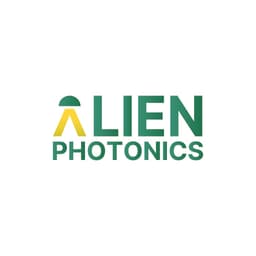


Double Convex (Bi Convex) Lenses (BCX, DCX, CXCX) (Uncoated and AR coated)
Bi-Convex (Double-Convex) lenses have spherical outwards shape in both surfaces. These surfaces have equal radius of curvature (ROC). Choose or request material, size, shape. Optional AR coating available.
Estimated Shipping Date: May 15, 2025 - May 29, 2025
* - Shopping cart pricing is based on the most recent pricing and it is NOT ORDERING, but requesting an official quotation which should typically reach You within 1-2 business days.
- Description
- Applications
Double Convex (Bi convex, DCX, BCX) Lenses: description, main functions and advantages
What is Double convex (Bi-Convex) Lens?
Bi-Convex (Double-Convex) lenses have spherical outwards shape in both surfaces. These surfaces have equal radius of curvature (ROC) and work in very similar principle as spherical plano-convex lenses. Double convex lens has positive focal length and perform most efficiently at magnification from 0.2 to 5 times. To achieve minimal spherical aberration, coma and distortion, DBX(CXCX) lenses should be used at 1:1 conjugate ratio.
What is the purpose and main functions of Double Convex (Bi-Convex) Lenses?
Key functions of double convex (DCX) Alien Photonics lens are converging of light rays, image formation, magnification, focusing light on instruments. While in laser-based applications bi convex lens are primary used for laser beam focusing.
Double Convex (Bi-Convex) advantages over Plano-Convex lens
Symmetrical focusing
Bi convex lens have symmetrical surfaces which makes them particularly effective for applications requiring symmetrical beam focusing from both sides of the lens. This can be advantageous in setups where light passes through the lens in both directions or where uniform focusing characteristics are needed on both sides of the lens.
High magnification
In setups requiring high magnification, Alien Photonics bi-convex lenses can offer better performance. Their symmetric design can help maintain image quality and focus precision when used in optical systems that magnify the laser beam or image significantly.
Beam diameter similar to lens diameter
Bi-convex lenses design allows for a more uniform focusing effect over a wider range of beam diameters, especially when the laser beam diameter closely matches the lens diameter.
Double Convex (Bi Convex, DCX, BCX) Lenses: for laser cutting, laser systems, semiconductors and other applications
ZnSe Double Convex Lenses for CO₂ infrared (IR) laser cutting systems
Zinc Selenide (ZnSe) bi-convex lenses are utilized in CO₂laser cutting systems to precisely focus laser beams, enabling high-precision cutting of metals and other materials. The choice of ZnSe is due to its high transmittance at the 10.6 µm wavelength of CO₂ lasers, crucial for achieving clean cuts with minimal heat affected zones.
CaF₂, BaF₂, MgF₂ Double Convex Lenses for UV laser systems for semiconductor manufacturing
Calcium Fluoride (CaF₂), Barium Fluoride (BaF₂) and Magnesium Fluoride (MgF₂) bi-convex lenses are critical in ultraviolet (UV) laser systems used for photolithography in semiconductor manufacturing. The selection of these double convex fluoride lenses comes from its exceptional low absorption and high transmission at UV wavelengths, ensuring the high-intensity UV lasers can be focused precisely to pattern semiconductor wafers with the required resolution and quality.
UVFS Double Convex Lenses for femtosecond laser systems
Ultraviolet Fused Silica (UVFS) bi-convex lenses are chosen for focusing femtosecond laser pulses in precision micromachining applications. UVFS's durability and low absorption across a wide range of wavelengths allow for the effective focusing of ultra-short laser pulses, critical for achieving precise material removal and surface modification without significant heat damage.